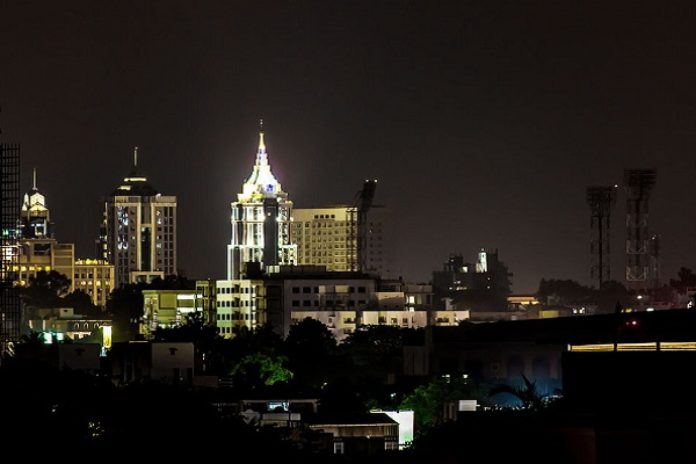Snapshot
Besides Bengaluru, Kakinada in Andhra Pradesh and Leh (Ladakh) have found a mention in the report for their solar-powered waste management systems, while Delhi and Gurugram have been upheld for their management of construction and demolition waste.
Bengaluru has emerged as a leader in managing waste using ICT solutions, according to a report of a country-wide study and survey jointly conducted by NITI Aayog and Centre for Science and Environment (CSE).
Besides Bengaluru, Kakinada in Andhra Pradesh and Leh (Ladakh) have found a mention in the report for their solar-powered waste management systems, while Delhi and Gurugram have been upheld for their management of construction and demolition waste.
The report documents best practices in solid waste management in 28 cities from 15 states — from Leh in Ladakh to Alappuzha in Kerala, from Indore in Madhya Pradesh to Dhenkanal in Odisha, and from Gangtok in Sikkim to Surat in Gujarat.
The best practices in municipal solid waste management — a comprehensive knowledge repository of how Indian cities are managing their solid waste — was released by NITI Aayog vice chairperson Rajiv Kumar, CEO Amitabh Kant and Special Secretary K Rajeswara Rao, along with Sunita Narain, Director General, Centre for Science and Environment.
Speaking at the launch of the report, Rajiv Kumar said, “With the launch of SBM 2.0 — Swachh Bharat Mission (Urban) 2.0 — the efforts for sustainable waste management are being further strengthened. With this intent, NITI Aayog and CSE have collaborated and developed this publication, showcasing the best practices in 10 different thematic areas of waste management.”
The repository is the result of five months of extensive on-ground collective research that was initiated in July 2021. The entire gamut of municipal solid waste management has been seen from a cross-section of 10 different aspects that explains a sustainable value chain.
These thematic aspects range from source segregation, material recovery and technological innovations to the management of different kinds of wastes and systems such as biodegradables, plastics, e-waste, C&D waste and landfills.
Sunita Narain, who directed the research along with Rajeswara Rao, said, “The Swachh Bharat Mission (SBM) 2.0, launched on September 1, 2021, is now based on a clear strategy for solid waste management in cities — a strategy that focuses source segregation, material reprocessing, and zero-landfills. This change needs to be recognised and disseminated so that waste does not add to contamination and become a public health menace. Waste should become a resource to be reworked, reused, and upcycled.”
According to Rajiv Kumar, “Waste management operations have been studied and incorporated in the publication to create greater capacities among officials of urban local bodies and other relevant stakeholders at the city level to implement efficient solid waste management systems.”
Narain agreed and said, “This set of case studies will inspire other cities to put the learning into practice.”
Speaking at the launch, Amitabh Kant said: “With rapid population growth in urban areas, capacities of local authorities often fall short of achieving the set goals of urban service delivery. Therefore, sector stakeholders must be equipped with adequate knowledge resources to plan efficient waste management systems. This publication has been developed with this aim. Local authorities can study different models and adapt them as per local conditions for implementation. This compilation would be a vital knowledge resource for urban practitioners working in this sector.”
According to Rajeswara Rao, while the government has been diligently working towards achieving complete waste treatment, “limited managerial and technical capacities amid rapid urbanisation have put immense pressure on urban local bodies (ULBs) to deliver efficient municipal services. But despite this, many cities have implemented ground-breaking, workable and resource-efficient solid waste management models.”
Rao further said, “It was felt that ULBs across the country should have access to this wealth of experience and the knowledge resources that present strategies for different waste management service chain components. With this intent, this publication Waste-wise Cities was conceptualised, and NITI Aayog collaborated with CSE to identify the best practices in 10 thematic areas.”
The compendium is a resource for developing cities to get new ideas, learn about the strategies, institutional arrangements, technologies and implementation modalities that have made things possible for some of the cities to emerge as stand-out performers.
Among the success stories is that of Ambikapur, a small town in Chhattisgarh’s Surguja district: christening itself a zero-landfill city, Ambikapur has activated self-help groups to notch up an almost 100 per cent performance in source segregation, collection, transport, treatment and disposal of its waste. Alappuzha, famous for its backwaters and lagoons, has found mention in the compendium for its initiatives in segregating waste at source and managing it in a decentralised fashion.
Indore, in Madhya Pradesh, which has led from the front in successive Swachh Sarvekshan rankings, has been shortlisted for its excellent source segregation practices, and its accompanying communication strategies aimed at bringing about behavioural change at the mass level.
Pune (Maharashtra), which features under the category of sanitary waste management, has been noticed for its ‘Red Dot’ campaign, a one-of-its-kind initiative that has brought citizens and the administration together.
In material processing, the practices undertaken by Bhopal (Madhya Pradesh), Surat (Gujarat), Dhenkanal (Odisha) and Jamshedpur (Jharkhand) have been documented by the report, while Gangtok’s (Sikkim) plastic waste management initiatives have put the city in the spotlight.
CSE and NITI Aayog would be jointly hosting workshops across the country to disseminate the learnings from these best cases to other cities.


